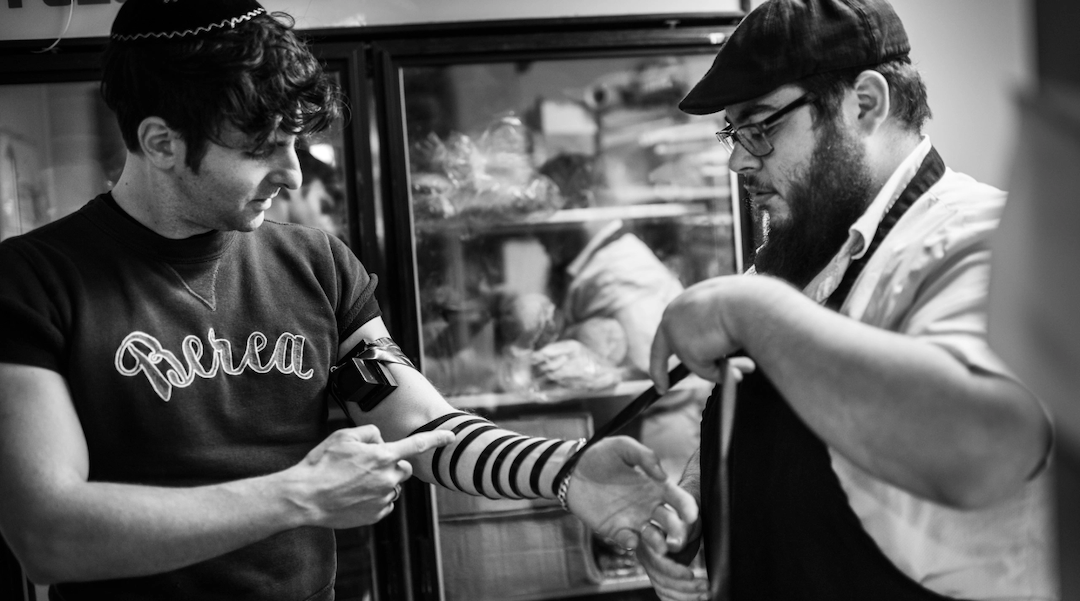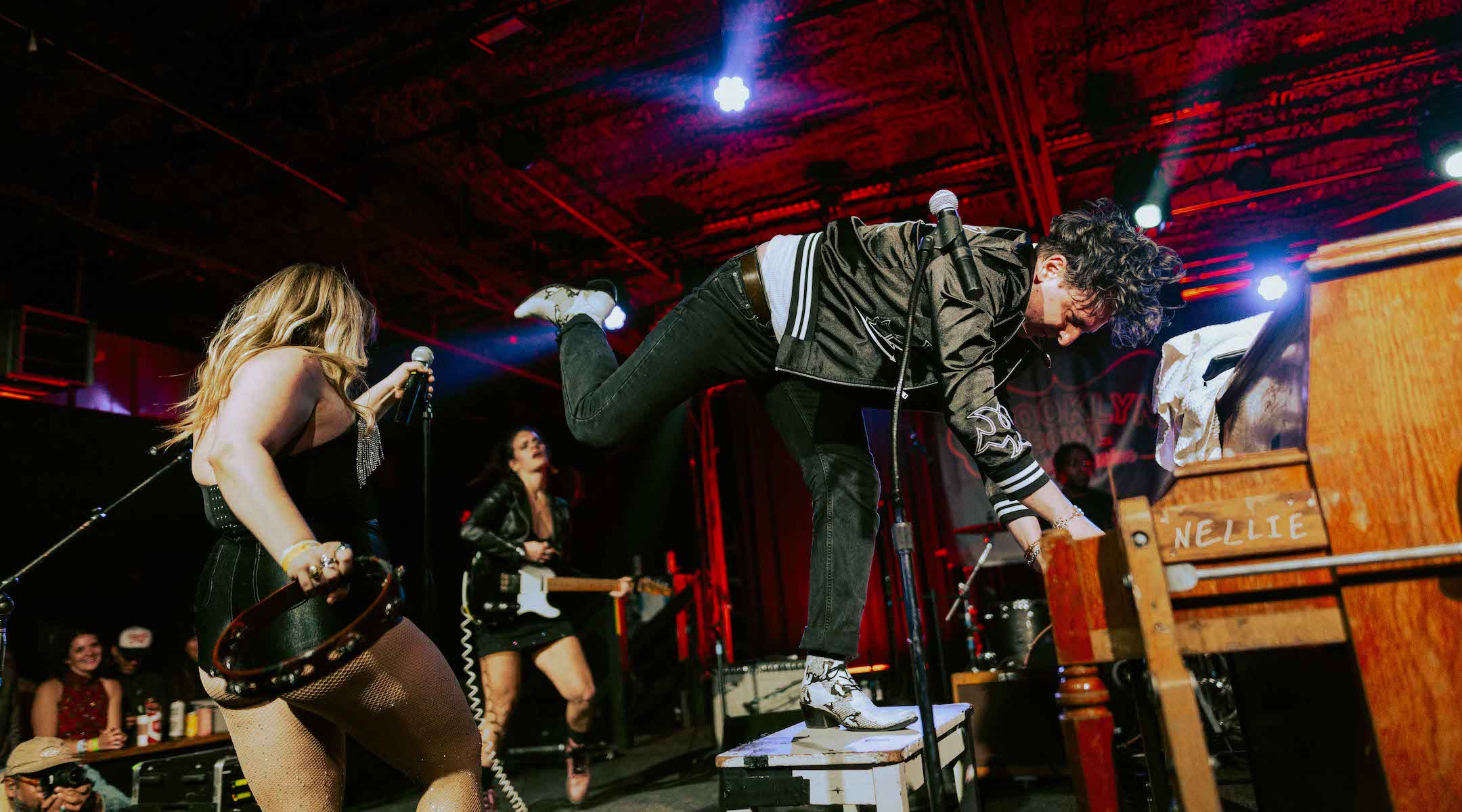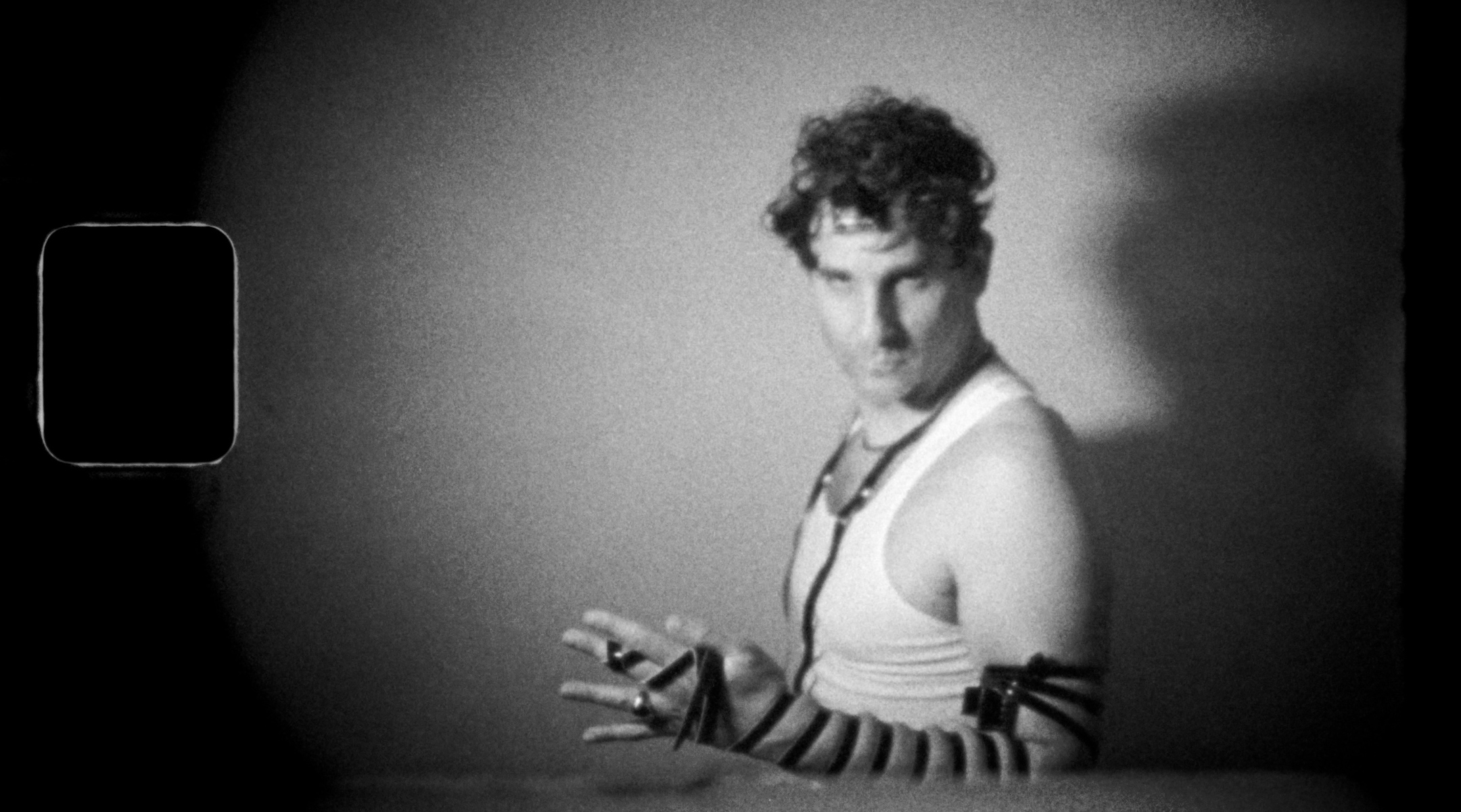(JTA) — Adam Weiner, leader of the rock band Low Cut Connie, says he can find inspiration in just about anything.
“I could be sitting at a salad bar at a mall, and that gives me everything I need to know,” he said on a video call from a house in New Mexico, where he was taking a short break from his touring schedule.
But in recent years, Weiner has been pulling from what he calls his “Jewy-ness” in his songwriting. On Tuesday, the process of exploring that side of his identity hits a peak, as he releases a single titled “King of the Jews,” which will feature on the band’s next album, “Art Dealers,” out Sept. 8.
The soulful piano ballad doesn’t break distinctly new ground for Low Cut Connie, which for over a decade has churned out several albums of bluesy, bar-soaked rock and roll with just a slight contemporary garnish. Weiner’s retro style has earned him fans from Elton John to Barack Obama and a devoted following who closely follow his boisterous live act.
But lyrically, the song gathers up several bits and pieces of the Jewish theme that has been more hidden in his previous work: the feeling of being an outsider, of feeling uncool, of being at the end of a “millennia-long anxiety about what’s coming.” (It also contains what seems to be his favorite Yiddish word, schmuck, which he has used several times in other songs.)
He said in the past he has downplayed those feelings and his Jewish identity, especially on the road. These days, he often wears a Star of David necklace; he recalled tucking it under his shirt while playing to a bar crowd in rural Illinois, where he could see swastika tattoos on some people in the crowd.
“When you’re a touring artist like me, and you play in Kansas and Iowa and overseas, I’ve been in so many situations for the last 15-plus years, where I, consciously or unconsciously, obscured talking about being a Jew,” Weiner said. “I’ve run into very ropey situations out there.”
The music video for “King of the Jews,” which is premiering a day early on the Jewish Telegraphic Agency, shows Weiner slowly wrap tefillin around his arm (something he does not do regularly as a mainly secular Jew). Some of the non-Jews who watched the video in its early stages thought the ritual phylacteries were part of an S&M object.
“They thought it was some sort of like Robert Mapplethorpe kind of kinky thing,” he said, referring to the photographer known for his erotic black and white photographs from the 1960s and 1970s.
The song and video position Weiner as one of the most outwardly Jewish personalities in contemporary rock. Ezra Koenig, the leader of Vampire Weekend, has hinted at his Jewish identity in lyrics and a music video that includes a staged Passover seder. The sisters of Haim often make Jewish references on their social media accounts (and talk about how they earned matzah ball soup as payment for their first gig). Pop producer Jack Antonoff made headlines for wearing a Star of David necklace. And Sabrina Teitelbaum, aka up-and-coming rocker Blondshell, is a recent example of a new voice mining her secular Jewish identity in her music.
Weiner said he has been putting his Jewish identity — and neuroses, the fear that something bad is coming — at the heart of his project for a while now, even as it might not always have been detectable to all his listeners.
“In this culture and in the politics, you think you’re on safe ground, and you might not be. And delivering that message with a lot of humor and levity is very Jewish,” he said.
In an interview, Weiner, 43, argued that being Jewish was more “cool” in the 1970s, and explained how being a Jew in a completely different time has affected him.
“There were so many Jewish entertainers and musicians who were very Jewy, whether it was Barbra Streisand or Neil Diamond or Lou Reed or Bob Dylan. Then in acting you had like Dustin Hoffman and Elliott Gould,” he said. “There was a real Jewish sensibility in that era.”
He said he thought the times had changed.
“It’s not particularly cool to be Jewish at this time,” he said. “The models of beauty and popularity … I realized that I kind of had internalized certain things about how I should look, talk and present myself that were very unflattering for myself. And luckily, over the years, my Jewy-ness asserted itself so much that I shed a lot of those things.”

Adam Weiner wraps tefillin on tour. (Jacob Blickenstaff)
Weiner grew up in Cherry Hill, New Jersey, in what he called a “traditional Conservative” household — on the dial between Conservative and Orthodox.
“It was not fun,” he said. “I had friends who went to Reform synagogues with a hippie vibe, with acoustic guitars and secular popular songs and stuff. And that wasn’t how I grew up, mine was very strict, and very, very stone-faced.”
Weiner felt alienated from religion in his 20s, throughout which he worked several jobs — including at a mall as a perfume spritzer, a word he pronounces in its Yiddish version, as shpritzer — before his music career took off in his 30s. He steadily gained a following, and in 2020 earned his biggest wave of press coverage for his “Tough Cookies” series of quarantine shows he live-streamed from his apartment with his Low Cut Connie guitarist. He started many of those streams with a greeting of “Mazel tov, motherf—ers,” and occasionally talked about Yiddish words — in his view, he got “outrageously Jewy.”
“People really responded to it,” he said. “And it was a nice moment for me because I realized that I had been obscuring a lot of that, and trying to be cool in a way. And I was like, I am extremely Jewy. Just gotta embrace it. And that is cool.”

Low Cut Connie, shown here at the SXSW festival in Austin, March 18, 2023, has been known to play hundreds of shows per year. (Salihah Saadiq Barnett/Rolling Stone via Getty Images)
He did something else after the start of the pandemic that he had never wanted to do before: perform at his hometown Jewish community center. He had long been the pride of the Cherry Hill Jewish community, and the JCC had asked him to perform multiple times over the previous decade. He had always thought his rowdy, sometimes profanity-laced show wasn’t a good fit.
But in 2021, he agreed and performed at a fall festival there.
In the end, he described it as a career highlight — mostly because he could lean into a sense of humor he felt doesn’t translate everywhere. The following night’s headliner, after Low Cut Connie’s night, was going to be Jake Tapper, in discussion with an interviewer.
“Before the show, they were like ‘We’ll take each of you to your dressing room,’ and they took me into the men’s locker room at the JCC, literally with like 85-year-old men with sweaty balls, putting talcum powder on themselves,” he said. “And they’re like, ‘We know you’re gluten-free. So we got you a gluten-free meal.’ They brought me a plate with five microwaved chicken nuggets on it and a couple ketchup packets.
“So I come out on stage, and I was like ‘Jake Tapper is here tomorrow night — I want to know if Jake Tapper is going to be in the locker room with all the sweaty balls. And are you going to give him five gluten-free chicken nuggets?’ …It really worked well.”
His Jewish-tinged humor hasn’t worked everywhere. He recalled a performance at Jack White’s hip Nashville record label and small venue, Third Man Records, that bombed. When he made a Jewish joke and one person laughed, Weiner pointed at the man and yelled “Jew!” A local paper called the routine antisemitic the following day.
Weiner is excited for what is next for the band and his unabashed in leaning into his Jewish side on stage. He pointed out that he sometimes wears a jacket covered in Stars of David.
“I realized that even though I don’t have religious faith, even though I don’t keep kosher, and I don’t pray, I’m one of the most Jewish people that I know,” he said.
JTA has documented Jewish history in real-time for over a century. Keep our journalism strong by joining us in supporting independent, award-winning reporting.






